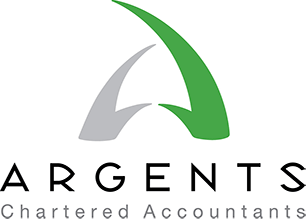Off-Payroll Working (IR35) - January 26th 2021
The "off-payroll" working rules that apply to certain workers supplying their services to clients via their own personal service companies start from 6 April 2021.
What's it all about?
The government introduced the legislation to allow HMRC to collect tax and NI from the employer, where a worker provides their services through an intermediary. Designed to reduce tax avoidance by contractors who work like full time employees but then bill for their service via a limited company. The IR35 employment status was declared by the contractor, not the hiring organisation but this will be changing. In 2017, in the public sector the rules changed with the onus to prove self-employed status moving from the contractors to the hirer. In April 2021 these rules apply to the private sector too.
Both medium and large businesses will be affected, small businesses will not need to determine the status of their off-payroll workers. The definition of a small company being one that meets any two of the following:
- A turnover of £10.2 million or less
- Having £5.1 million on the balance sheet or less
- Having 50 or fewer employees
Contractors and Subcontractors
This means the cost of hiring contractors who bill for services via a limited company will increase. This will only apply to medium to large hiring firms. Subcontractors too will also need to get to grips with the rules impact and be prepared for April 2021. HMRC have provided an online tool to help engagers make employment status determinations. Although its accuracy has been questioned along with the requirement that those inputting data must also have a good understanding of the Off Payroll working rules.
Considerations
If you’re a hiring organisation once defining you are a medium-large business. You need to ascertain the number of subcontractors engaged, find an in-house IR35 expert and decide whether professional advice is required. You may wish to review the longer term aspirations regarding how off-payroll workers are engaged.
If you are a contractor, understand the implications of the rules to your contracts as at April 2021. Check if this could give rise to disputes or disruptions and if this could cause issues with obtaining contracts in the future. How will this impact hiring organisations when/if hiring contractors?
There has been an increase of enquiries from contractors seeking to close down their limited companies due to Brexit, Covid and IR35. Companies should not fear repercussions of hiring contractors in favour of self-employed.
What is required of the fee payer?
The fee payer, public authority, agency or third-party who is responsible for paying the worker’s intermediary must:
- Pay the relevant employer’s NICs
- Calculate a deemed direct payment to account for the employment taxes associated with the contract
- Deduct those taxes from the payment to the worker’s intermediary
- Report taxes deducted to HMRC through Real Time Information (RTI) Full Payment Submissions (FPS)
Please contact us if you need assistance in complying with the new rules.
